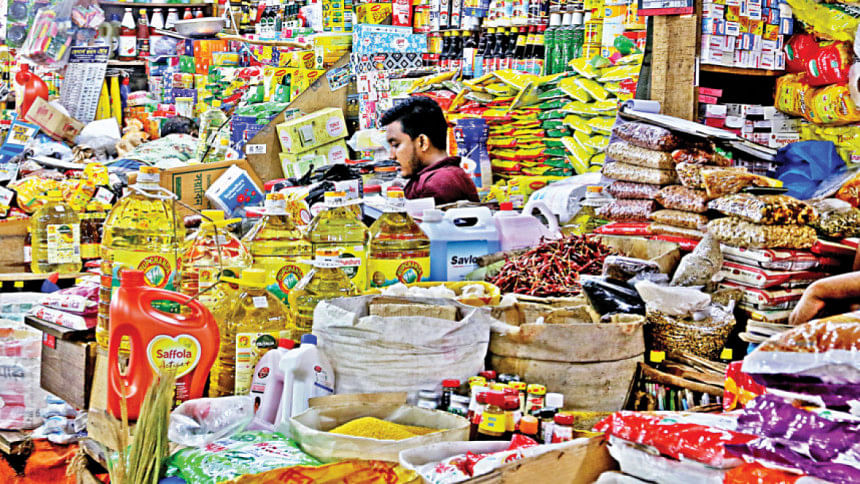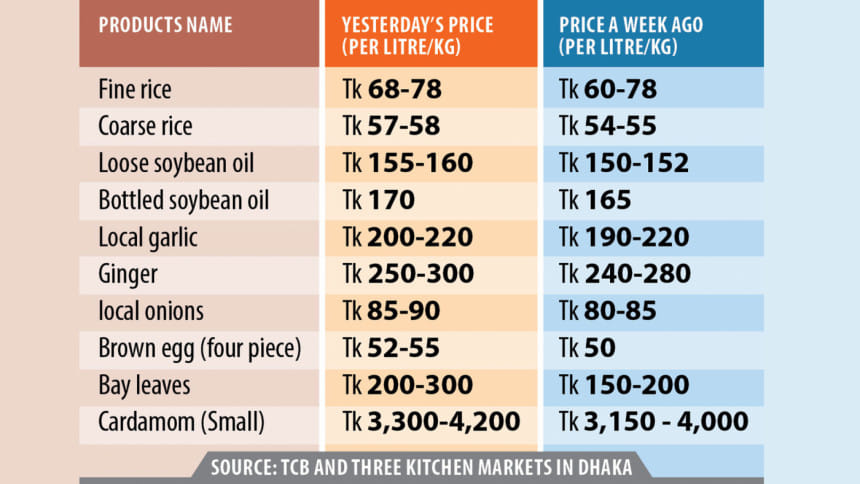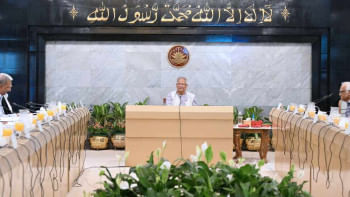Essential Commodities: Prices go up ahead of Eid

As Eid-ul-Azha approaches, consumers brace for a hike in the prices of essential commodities, a trend seen all too often ahead of Eids.
In the week leading up to Eid, commodity prices have risen in the capital and elsewhere in the country, straining consumers.
The recent price increase is especially painful because Bangladesh's average inflation rate has been above 9 percent for the previous two years.

During visits to several kitchen markets in the capital yesterday, it was found that the prices of soybean oil, onions, eggs, rice, garlic, ginger, cardamom, and bay leaves, among other daily necessities, had gone up compared to a week ago.
Meanwhile, data from the state-run Trading Corporation of Bangladesh (TCB) also showed a similar trend.
Depending on quality, fine rice was selling at Tk 68-78 per kilogramme (kg), up from Tk 60-78, according to various retailers.
On the other hand, the price of coarse rice has gone up to Tk 57-58 per kg.
On top of that, the runaway cost of cooking oil has also been hurting middle and lower-middle-income families.
Loose soybean oil was being sold at Tk 155-160 per litre, up from Tk 150, and bottled soybean oil was priced at Tk 170 per litre, up from Tk 165.
Local garlic was being sold at Tk 200-220 per kg, up from Tk 190-220, while ginger price was Tk 250-300 per kg, up from Tk 240-280.
Local onions were selling at Tk 85-90 per kg, up by about Tk 5, and four pieces of brown eggs was selling for Tk 52-54, up from Tk 50.
Bay leaves were being sold at Tk 200-300 per kg, up from Tk 150-200.
Small cardamoms (elaich) were selling at Tk 3,300-4,200 per kg, up from Tk 3,200-4,000.
Rahim Sheikh, a trader at Duaripara Bazar in the capital's Mirpur, said prices of essential commodities increased in the wholesale market, and this had an impact on the retail market.
"Consumers will see retail prices fall if wholesale prices fall first. But for that to happen, the government needs effective monitoring of the supply chain," he said.
Riaz Uddin, who was shopping at Kawran Bazar, said the high prices of essentials had forced him to cut down on monthly shopping.
He said he spent Tk 10,000 on essentials such as fish, meat, and vegetables before Eid-ul-Azha last year, but this year, he could only afford to spend Tk 8,000.
"I was forced to cut costs. Otherwise, if I had spent Tk 10,000 like last year on fish, meat, and vegetables, I would not be able to afford the rest of the essentials that I need."
Eyamin Sultana, who works at a private company in the capital and lives in Mirpur, echoed those sentiments.
"There is no product in the market that has not gone up in price. Every week, when I go to the market, I see that the price has increased. This is intolerable," she said.
"Due to increases in prices, I am buying less than necessary," she added.
"Every year, the prices of some products automatically increase before Eid. The government should investigate this matter seriously. Common people are not doing well at all," she lamented.
Sales ahead of Eid-ul-Azha this year are far lower than last year, Monwar Hossain, a retail trader of Yasin General Store at Kawran Bazar, one of the largest kitchen markets in the capital.
"Sales are down about 15 to 20 percent," the trader claimed.
"The demand for some products increases a lot ahead of Eid-ul-Azha. As a result, a supply-demand gap is created. This is why the prices of these products are increasing now," he said.
"We have not increased the prices of any commodity, including soybean oil," said Taslim Shahriar, deputy general manager at Meghna Group of Industries, one of the biggest commodity importers and processors in the country.
He blamed retailers for the increase in prices.

 For all latest news, follow The Daily Star's Google News channel.
For all latest news, follow The Daily Star's Google News channel. 



Comments